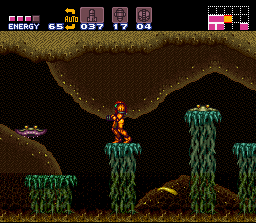Yahoo reports:
LOS ANGELES (Reuters) – As lawyers for Britney Spears and her ex-husband fought a court battle over custody of their two young sons, a publisher said on Friday that the pop star’s mother is writing a book about parenting.
I suppose it’s going to be sort of a what-not-to-do kind of thing, right? Or is it going to be called How To Pimp Your Daughter, Ruin Her Life and Get a Book Deal Out of It? Either would be fitting.
Religious publisher Thomas Nelson said it will publish “Pop Culture Mom: A Real Story of Fame and Family in a Tabloid World,” by Lynne Spears. Nelson spokesman Curt Harding said the book, to be out next spring, will be about Lynne Spears’ raising three children and will have a religious element.
Well, I’m sorry for all religious people. I guess more than a few of them will buy it, but let’s be honest: using your children as a gateway to fame and money while turning them into little more than deranged prostitutes with no grasp of reality isn’t exactly something Jesus would’ve… appreciated. In fact, I almost think he might’ve, you know, objected. Strongly, even.
Meanwhile lawyers for the pop singer and her ex-husband Kevin Federline were in a Los Angeles court to argue over whether the two have complied with court orders over parenting and, in Spears’ case, random drug testing.
And that’s all because her mother did such a wonderful job of raising her daughter that she managed to turn her into a proper drug-gobbling panty-losing Christan girl. Hallelujah!
Jesus frickin’ Christ… when Kevin Federline – Kevin “Yuck” Federline himself – starts looking like a rational person, something is deeply wrong with the world.
Spears, 25, and Federline, 29, split a year ago and for months have waged a custody war over Sean Preston, 2, and Jayden James, 1, as Spears’ life slipped out of control.
It was in control before? Really?
The pop diva, who rose to stardom on the Disney Channel, has spent time in drug and alcohol rehab, clashed with paparazzi and become the fodder for numerous jokes after being photographed in public without wearing underwear.
Well, what do you expect when someone starts seeing the world through the lunatic eyes of Disney? All that fake sweet sugar-coated optimism with its boiling undercurrents of oppressed sexuality and misanthropy can’t be healthy.
On Thursday, a judge dismissed an automobile hit-and-run case against her after she settled with the owner of the car she hit, and she pleaded not guilty to a lesser charge of driving without a license.
But her singing career appears to be rebounding with a recent single, “Gimme More,” that is topping digital download charts, and a new album “Blackout,” set for release October 30.
Oh dear. More is certainly not what she needs. (It’s also not what we need; I once, quite by accident, was forced to listen to her rendition of I Love Rock N’ Roll on the radio. It still hurts.) The only two things Britney Spears needs more of is sense – and the idea that music is actually art. It’s fun, and it’s meant to be fun, but it can also be beautiful and mean something at the same time. It can even mean something fun – like, you know, a lot of rock ‘n’ roll did. Freedom and joy and rebellion and hope – instead of repetitive prepackaged cliché bullshit.
Actually, it’s not two things that she needs, it’s three. She also needs underwear.
Still, family Court Commissioner Scott Gordon in recent weeks has yanked visitation rights from Spears only to reinstate them after she complied with his rulings.
Gordon has ordered both parents to seek counseling and hire a parenting coach. He has told Spears she must submit to random drug testing twice a week.
A model Christian family, I suppose? Ironically, in more than a few cases the answer would be “yes”. Poor old Jesus. You put so much effort into something, get your ass nailed to a cross, all to make a point about humility and sacrifice and tolerance, and what do you get? You get Lynne Spears using your name as a PR device to sell books about her career as a female ponce.
It’d be funny if it weren’t so depressing.


 Helen Trevillion
Helen Trevillion Black Sheep
Black Sheep
